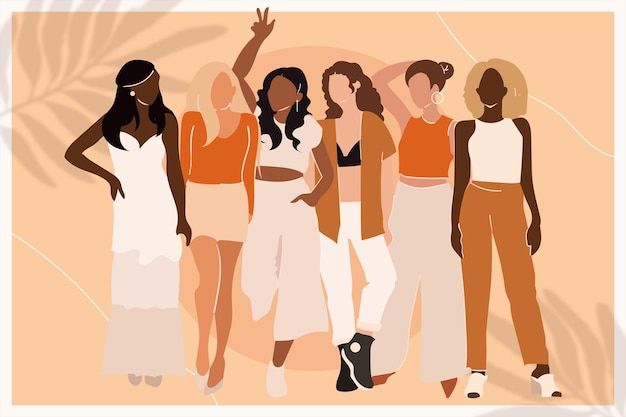Period syncing
- Marit Bonne
- Marit's Mythbusters
- 3 minutes (599 words)
They say knowledge is power, but what if this knowledge is total nonsense? When you fall on your tailbone, you won’t get blind and when you get a jellyfish sting, please don’t pee on it. You will be surprised how many biological misconceptions are rooted in your mind and that of others. In our rubric ‘Marit’s Mythbusters’, I will debunk common myths that many of you believe to be true.
Menstrual cycles will synchronize when people spend a lot of time together.
It’s like clockwork. Your mom, your friends, colleagues, yourself: once you start your monthly bleeding, everyone else suddenly is too! I used to believe that the closer your friends are, the more in sync cycles your cycles would be. It was so practical as well: if we were all on our period, we could seek comfort together and provide menstrual products to friends in need! Little did I know that science hasn’t been able to find unambiguous results regarding time spent together and the syncing of people’s menstrual cycles. Was it all a myth then?
The concept of period syncing roots in the study by Martha McClintock. She recorded the menstrual onset of 135 college women living in the same dorm. Her conclusion? The menstrual cycles of most of these women aligned! Afterwards, period synchronization had been referred to as the ‘McClintock effect’. With this, the idea that social interactions could influence the menstrual cycle was born (and even still presented in current Biology lectures lol).
However, much more refined studies were needed to debunk, or confirm, the McClintock effect. Fortunately, the rise of period-tracking apps has made data on menstrual cycles easily available. This enabled the performance of a study in China to gather data from 186 women living in a dorm together. Some of them showed a synchronous period, but this effect was statistically insignificant. An even larger study was performed at Oxford University, where they collected data from 1500 people using the period tracking app ‘Clue’. They busted the myth: being close to one another is very unlikely to disrupt one’s menstrual cycle.
There might be another explanation for the huge amount of anecdotal evidence on period syncing. A study in 2018 by Charlotte Helfrich and her colleagues revealed that the human menstrual cycle can be entrained to the moon. The moon?! Yes, the freaking moon. While the effect is very small, the menstrual cycle can be temporarily synchronous with the lunar cycles. So, sometimes the two cycles are synchronous, sometimes not – it is called relative coordination. To make it even more complicated: there are three lunar tidal cycles the menstrual cycle can be synchronous to, based on the position of the moon to the earth. It’s too elaborate to explain here, but I’d recommend looking up the paper if you’re interested! The study of Helfrich and colleagues raises the following thought: if people’s menstruation can temporarily synchronize with the moon, then observed synchrony in periods with your roommates could be devoted to simultaneous entrainment to the lunar cycle? Pure speculation, of course, but an interesting thought nonetheless.
It is a heart-warming idea that spending time together will get human bodies in sync. Sadly, we only have anecdotal evidence to back this up, which is not enough for scientists like ourselves ;) We need way more research on periods to reveal the interesting things our bodies are capable of (such as entraining to the moon!). Sometimes debunking a myth reveals something even more fascinating; who knows, we might all be moon-people ;)



Comments
Log in to read and post comments